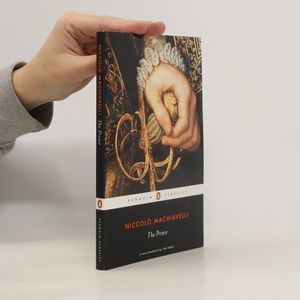The book is currently out of stock

Parameters
- 156 pages
- 6 hours of reading
More about the book
Focusing on the challenges faced by new rulers, the work delves into the strategies necessary for maintaining control over a realm. Machiavelli distinguishes between hereditary and new princes, emphasizing the latter's need to stabilize their power through sometimes morally ambiguous actions for the greater good. Unlike typical treatises on ideal governance, this book provides pragmatic insights based on historical examples and personal observations from diplomatic missions, reflecting Renaissance influences through its use of Latin and classical references.
Language
Publication
- 2024

- 2024

- 2023

- 2023

- 2023

- 2023

- 2023

- 2023

- 2023

- 2022

- 2022

- 2022

- 2022

- 2022

- 2022

- 2022

- 2022

- 2022

- 2022

- 2021

- 2021

- 2021

- 2021

- 2021

- 2021

- 2021


- 2020

- 2020

- 2020

- 2020

- 2020

- 2020

- 2020

- 2020

- 2020

- 2020

- 2020

- 2020

- 2020

- 2020

- 2020

- 2020


- 2019

- 2019

- 2019

- 2019

- 2018

- 2018

- 2018

- 2018

- 2018

- 2018

- 2018

- 2018

- 2018



- 2017

- 2017

- 2017

- 2017

- 2017

- 2016

- 2016

- 2016


- 2015

- 2015

- 2015

- 2015

- 2014




- 2012

- 2012

- 2012

- 2012

- 2012



- 2011

- 2011

- 2011

- 2011

- 2011

- 2011

- 2010




- 2009

- 2009

- 2009



- 2008

- 2008


- 2008

- 2006


- 2005

- 2005





- 1998



- 1995


- 1992


- 1986

- 1984










Book purchase
The Prince, Niccolò Machiavelli
- Language
- Released
- 2008
- product-detail.submit-box.info.binding
- (Paperback)
We’ll email you as soon as we track it down.
Payment methods
We’re missing your review here.